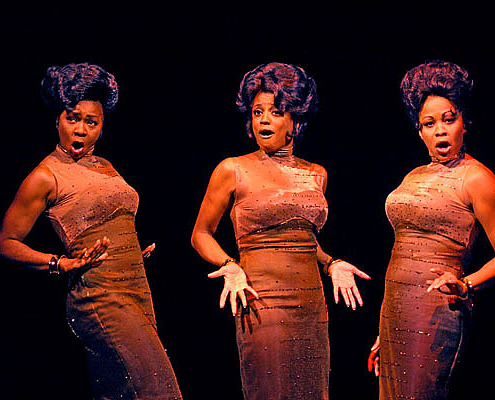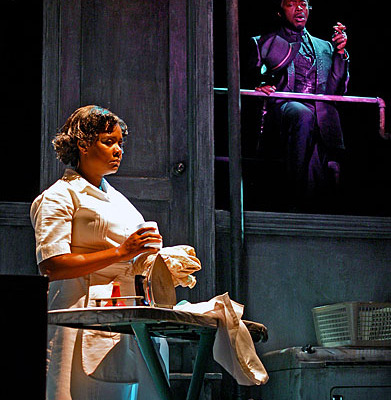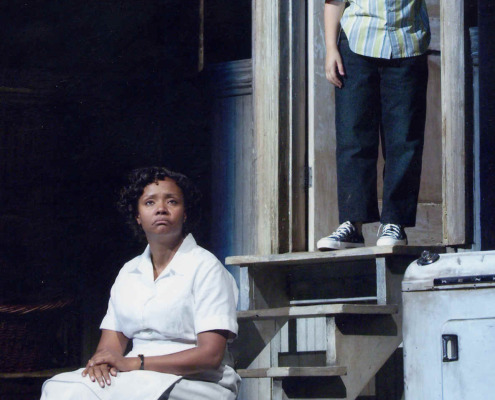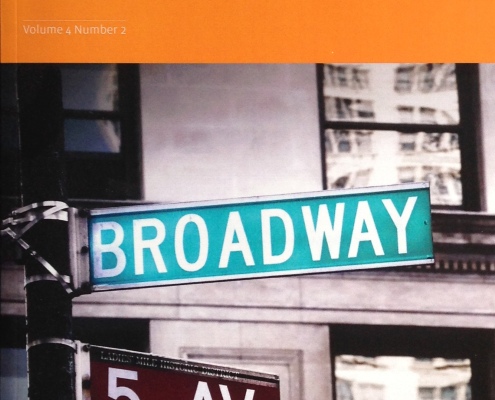Engaging an Icon: ‘Caroline, or Change’ and the Politics of Representation
Studies in Musical Theatre, 4.2
Opening Section
Tony Kushner and Jeanine Tesori’s 2003 musical Caroline, or Change covers a lot of ground. Kushner, author of the musical’s book and lyrics, creates numerous layers of textual meaning in a musical primarily about motherhood and dealing with loss. Caroline also manages to cover the USAmerican Civil Rights Movement and the assassination of President Kennedy in November 1963, while it turns its main attention to economic structures and poverty in the American South. Though Kushner conceived the show prior to the 2005 Hurricane Katrina disaster, Caroline, or Change is also about the state of Louisiana being under water. Caroline Thibodeaux, the show’s central character, does laundry in a basement in Lake Charles, Louisiana. ‘They ain’t no underground / in Louisiana’, she sings in the opening number; ‘There is only / under water’.
Caroline works as the maid to a middle-class Jewish family in Lake Charles. She cooks and cleans for the Gellmans, and when Noah, the eight-year-old in the house, comes home from school, Caroline watches him. This relationship – of black woman to white child – is central to Caroline, or Change, but it is, further, a relationship integral to the history of the American South. Kushner’s exploration of this connection situates Caroline, or Change as the continuation of a legacy of literature where black women serve as domestic servants and childcare providers for white families. This aspect of the show was almost universally ignored by critics when Caroline, or Change was first staged in 2003. Though Catherine Stevenson has previously discussed this musical as a narrative about mothers and motherhood, I would like to explore the representations of race in Kushner and Tesori’s musical, particularly its portrayal of black women in the South. This essay briefly examines the trope of the mammy in USAmerican literature before turning specifically to Kushner’s treatment of black women in Caroline, or Change. It is my contention that a reading of Caroline, or Change through the historico-cultural lens of the mammy icon further enriches interpretations of the musical at the same time as it repositions the legacy of that icon in our contemporary political moment. I argue that Kushner and Tesori’s musical, through a critical engagement with the mammy trope, creates a rich and dynamic portrait of a black woman that reclaims and revitalizes the mammy as a unique USAmerican cultural icon and a powerful force for political change.








Leave a Reply
Want to join the discussion?Feel free to contribute!